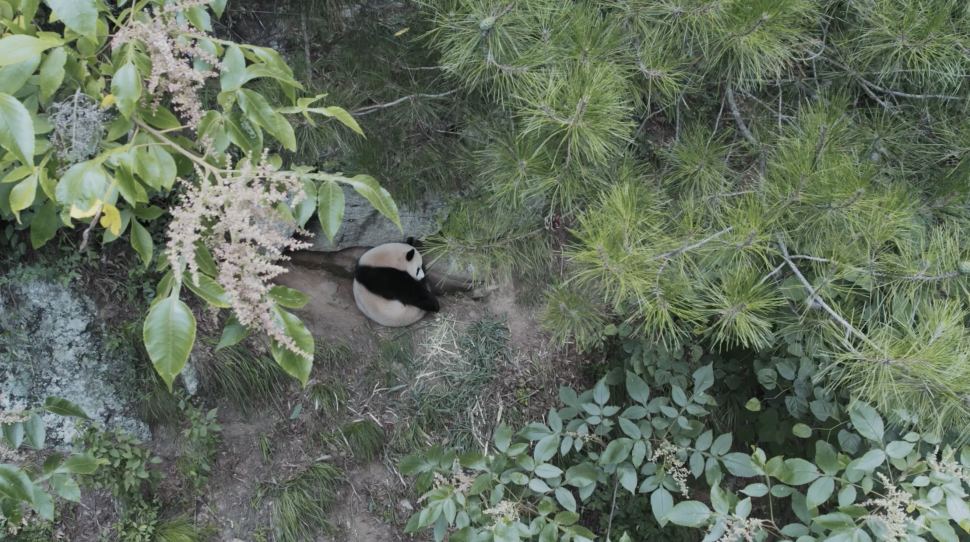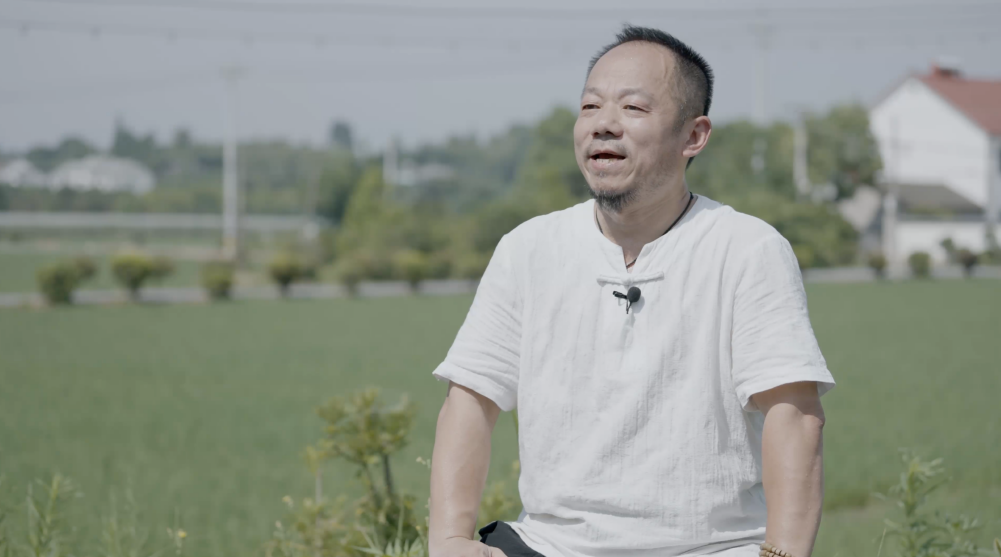Lucid waters, lush mountains yield ecological, economic benefits
Respecting, adapting to, and protecting nature is essential for building China into a modern socialist country in all respects. We must uphold and act on the principle that lucid waters and lush mountains are invaluable assets, and we must remember to maintain harmony between humanity and nature when planning our development, Xi Jinping, general secretary of the Communist Party of China Central Committee, stressed in a report delivered to the 20th National Congress of the Communist Party of China.
"Lucid waters and lush mountains are invaluable assets", an important concept put forward by Xi, has become a consensus of the whole of society.
Xi first proposed the "Two Mountains" theory, in which clear waters and lush mountains are invaluable assets, comparable to the gold and silver mountains of legend, on Aug. 15, 2005 when he visited Yucun village, Anji county, Huzhou city, east China's Zhejiang Province, while serving as secretary of the CPC Zhejiang Provincial Committee.
Practice is the sole criterion for testing truth. Under the guidance of the "Two Mountains" theory, China has continuously improved the environment, made remarkable achievements in pollution control, and advanced ecological progress.
"Only when we properly protect Erhai Lake can we live a better life"
Gusheng village is a typical traditional village of the Bai ethnic group in Wanqiao township, Dali city, Dali Bai Autonomous Prefecture in southwest China's Yunnan Province. Houses with gray rooftops and white walls stand in neat formations in the village, located beside the tranquil and beautiful Erhai Lake. Now, an "ecological corridor" has been built along the lake.
In 2015, Xi visited Erhai Lake during an inspection tour. "Back then, the general secretary was standing here. He stressed ecological protection of Erhai Lake and called on us and the local government to properly protect the lake's natural beauty forever," recalled He Licheng, a resident of the village.

Xi Jinping talks with villagers in Gusheng village, Wanqiao township, Dali city, Dali Bai Autonomous Prefecture in southwest China's Yunnan Province, on Jan. 20, 2015. (Xinhua/Ju Peng)
"Swimming in Erhai Lake was my favorite thing to do when I was young and the water in the lake was clear," He said, adding that when there wasn’t enough water in the village's wells for villagers to drink before the rainy season, they fetched water directly from Erhai Lake.
However, due to rapid economic development, a dense population, and changes in lifestyle and ways of production in the Erhai Lake basin, the lake’s water quality declined dramatically, which took a heavy toll on He, who made his living by fishing back then.
"Like many other people here, I didn't realize that fishing and building fishponds had harmed the ecology of Erhai Lake. I wasn’t aware that Erhai Lake had become diseased until I saw it was severely polluted," He said.
To protect Erhai Lake, local governments intensified pollution prevention and control efforts and banned the use of fish cages and motor fishing boats. He had to breed fish outside the village until 2014, when he returned to run an inn.
After Xi visited Gusheng village, villagers became more determined than ever to protect Erhai Lake. "We have always kept the general secretary's instructions of properly protecting Erhai Lake in mind," He said.
In 2018, Dali city implemented a plan to protect Erhai Lake by drawing ecological conservation "red lines." According to the plan, one third of He's inn, which was in the zone demarcated by the red lines, had to be demolished.
"It was hard when I heard the news. My inn's business had just begun to improve after years of effort, but now it was going to be torn town," the innkeeper recalled.
"However, I thought back to the Erhai Lake of my childhood, the days when I earned my living outside the village, and the general secretary's instructions. I realized that only when people like me, born and raised near Erhai Lake, properly protect the lake, can we live a better life," He said.
Now, the notable progress that has been made in the ecological conservation of Erhai Lake has brought happy lives to locals. "Nowadays, our incomes have doubled, and we are keenly aware that a sound ecology brings a better life," He said with a smile.
"By properly protecting Erhai Lake, we sustain our future. After the 'ecological corridor' was put into use, I take a walk every night there and feel relaxed, probably because I have contributed to the building of the ecological corridor," He said, adding that he is willing to do anything for the lake.
"I'm proud to be a mountain guardian"

Aerial photo shows a giant panda in the Qinling Mountains. (People’s Daily Online/Liu Ning)
The Qinling Mountains, which boast rich wildlife resources, have reported remarkable achievements in ecological conservation under the guidance of the "Two Mountains" theory. In recent years, more than 70 percent of wildlife species in the province have been put under protection, and the population of species under key protection has constantly risen.
These achievements would not have been possible without the contributions made by the Qinling Mountains' guardians, including Chen Yuanyu, who was born after 1995.
Raised in the city, Chen became fascinated by the forests in Foping county, Shaanxi, immediately after her arrival. "When I walked in the mountains, I found peace in my heart and did not feel restless,” she said.
As a forest ranger, Chen's main task is to conduct daily patrols, including recording traces of animals, changing the memory cards of infrared cameras, and managing protection stations. Undaunted by the harsh working conditions and heavy tasks, Chen finds pleasure in her work even when she sometimes has to conduct surveys in places off the beaten path after taking a long trek.
"Every time I walk along the paths, I get a different feeling. Sometimes I encounter different animals, and it's like you never know what you will see around the next corner," the forest ranger said.
Situated on the southern slopes of the Qinling Mountains, Foping county has a forest coverage rate of 91.19 percent, providing a good habitat for wild giant pandas. "The Qinling Mountains provide a suitable environment for giant pandas, including for growing their food. As a result, this area is densely populated with giant pandas,” Chen said.
The wild giant panda population in the Qinling Mountains reached 345 at the time of China’s fourth national giant panda survey, and the population density of this species ranked top in China.
Chen sometimes comes across wild giant pandas during her daily patrols. One day, she passed through a dogwood forest near a bamboo forest and saw a wild giant panda lying nearby. "At that moment, I was just totally stunned. We were less than one meter apart. I had no idea whether to move or stay, and even forgot to take a photo as a memento," the forest ranger recalled.
The funny thing was that the giant panda didn’t even notice Chen at first. Instead, the giant panda just played with its lunch. Then, at one point, it caught a glimpse of her and they looked at each other. Chen felt a bit stressed, but the giant panda soon put down the bamboo and then turned back before ambling deep into the bamboo forest.
Chen prefers to call herself a mountain guardian. For her, protecting the Qinling Mountains is the same as protecting a treasure trove.
"The Qinling Mountains are a treasure trove. Even a weed found in the mountains can be used as traditional herbal medicine," she said.
“Protecting the Qinling Mountains is protecting people. Lucid waters and lush mountains are invaluable assets. We rely on mountains and water to survive. We are proud to say that we are mountain guardians,” Chen affirmed.
"I call bamboo my 'child'"

Aerial photo shows a bamboo forest in Anji. (Photo/Lyu Qiang)
In the past, residents in Anji county would exhaust their natural resources to obtain food and wealth. However, as the birthplace of the "Two Mountains" theory, the county has protected the natural environment, which has proven to be even more valuable than materials, transformed its method of production and explored a new path of green development, with economy and ecology thriving side by side.
At the entrance to the county's Yucun village stands a stele on which the “Two Mountains” theory is inscribed: Lucid waters and lush mountains are invaluable assets. The stele symbolizes a new chapter in Anji’s green development.
In the last century, the village pursued economic growth through mining. Villagers became prosperous but found themselves in a poor ecological environment, as mountains were hollowed, waters tainted, and the air fouled. Later, the village learned from its mistakes, closed down its mines, and embarked on its journey to green development.
Nowadays, Yucun village enjoys a sound ecology, brisk homestay hotel business, and thriving tourism. "I feel so happy to enjoy the beautiful scenery of the village," said an owner of a small shop in the village.
The rich bamboo of Anji county provide a prefect resource for its implementation of the "Two Mountains" theory. Anji has about 1 million mu (66,667 hectares) of bamboo forests, which facilitates its green development, and constitutes a vital ecological barrier.
Over the past 40-plus years, the bamboo industry has thrived in Anji. The output value of the county's bamboo sector accounts for 10 percent of the country's total, despite the overall volume of bamboo production in the county only comprising just 1.8 percent of the country's total.

Photo shows Xu Yan, who has worked in the bamboo industry in Anji for many years. (People’s Daily Online/Yuan Meng)
Xu Yan has been engaged in the bamboo industry for 25 years. By taking advantage of its local resources, Xu has turned his small workshop into a locally known bamboo technology company.
"Anji boasts the most complete industrial chain for the bamboo sector with available machines, spare parts, and machine repair services. I prefer to do bamboo business in Anji," Xu said.
"I call bamboo my child. After the 'Two Mountains' theory was proposed, bamboo products have become increasingly popular, and I have received more orders and seen a significant increase in sales of bamboo products," he said, noting that he is optimistic about the future of his company despite the COVID-19 epidemic's impact on its sales.
Xu noted that the key to the development of Anji is the bamboo industry. "I hope to expand my business in the future, open plants in south China's Hainan Province and southwest China's Sichuan Province, and establish bamboo culture industrial parks to bring together facilities such as paint rooms and carbide furnaces. I believe that sales of my bamboo products will expand further in the future," Xu said.
Photos
Related Stories
- Interview: China's determination for green development offers great opportunity for cooperation: Aussie company
- China charges ahead for green development as NEV charging piles boom
- China sets example by blazing green transition trail
- China a greener country after decade-long ecological efforts
- Megacity Beijing pursues green, high-quality development
Copyright © 2023 People's Daily Online. All Rights Reserved.









